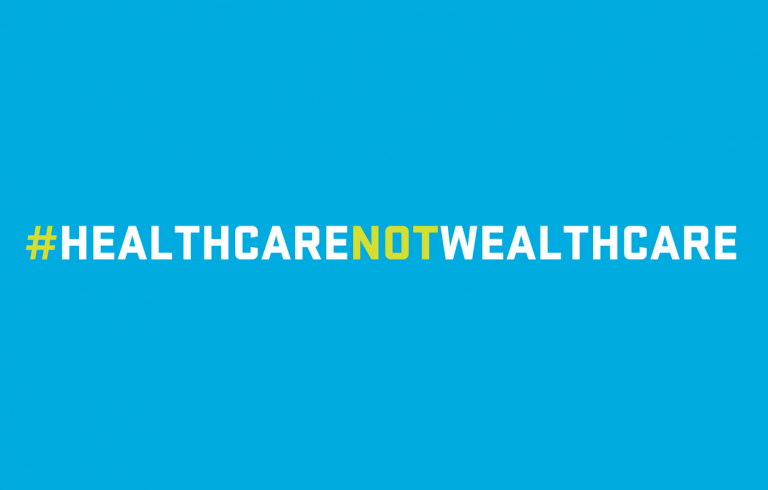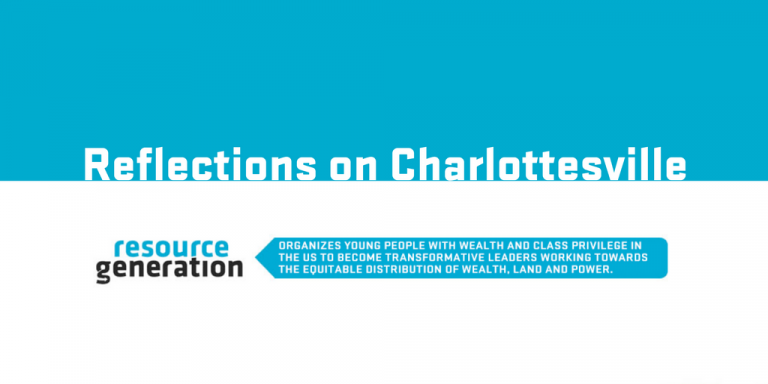Brief Reflections on Janus vs AFSCME and the Importance of Public Sector Unions
Looking for Iimay’s blog post about Transforming Philanthropy? Go here.
On Monday the Supreme Court heard oral arguments on Janus vs AFSCME (American Federation of State, County and Municipal Employees), which challenges the legality of “fair share fees” that all public workers who are represented by a union automatically pay to the union to cover the cost of the union’s collective bargaining on their behalf. The fair share fees are a primary source of revenue for public sector unions, since public sector unions are required to represent both members and non-members.
I grew up in an anti-union, “right-to-work” state — an intentionally misleading term for laws designed to defund unions by making it illegal to collect fair share fees. These laws make it harder for working people to form unions and collectively bargain for better wages, benefits, and working conditions. In North Carolina, this looks like having the second to lowest union membership rate in the country and ranking 35th in the nation for teacher pay.
The supporters of Janus vs AFSCME want to expand the devastating impact of anti-union ‘right-to-work’ laws to all public sector unions in the country. Public sector unions represent the last stronghold of organized labor in the United States, with half of all unionists being public sector workers. Also, people of color – particularly Black people – have relied on public sector jobs and benefits for economic mobility, and Black women will be the most harmed by Janus. This Supreme Court case is the latest blow in a 40-year racist and classist attack by the right wing and conservative billionaires such as the Koch brothers and Walton family on organized labor, as outlined by L.A. Times.
The history of white wealthy people attacking and undermining solidarity between a multiracial working class goes back even further, from the creation of whiteness as a way to drive a wedge between European indentured servants and African slaves, to the tipped minimum wage, to segregation, to the creation of anti-union ‘right-to-work’ laws in the 1940s by a white supremacist who argued that the laws were necessary so that ‘white workers would not be forced to join unions with Black workers.’
Janus vs AFSCME is coming on the heels of the regressive #TaxScamBill, which slashed taxes on the wealthy and on corporations and which the Congressional Budget Office projects will add $1.4 trillion to the deficit. To balance this deficit of their own creation, conservatives are pushing for cuts to to the social safety net, as demonstrated through Trump’s proposed budget, which includes severe cuts to Medicaid, Medicare, and Supplemental Nutrition Assistance Program (SNAP).
These legal and policy attacks are part of a concerted rright-wingstrategy to dismantle public infrastructure and push towards individualism and privatization. Union fair share fees are a systematized way for everyone to chip in to something that benefits the whole group. In that way, they are comparable to taxes, which are the primary mechanism we have for mandating that people pay their fair share for infrastructure, public services, and a social safety net that benefits us all. However wealthy people – us and our families – have long avoided paying our fair share through tax loopholes and tax cuts, which has only been exacerbated by the recent tax bill.
In a perverse twist, as the Trump administration is moving to eliminate federal agencies as part of its budget cuts, we wealthy people are being positioned as saviors of publicly funded projects. Newt Gingrich, referring to the Biological Services Unit which is on the chopping block, said, “there are probably 20 billionaires who could endow it.”
This is the epitome of the neoliberal worldview, in which the end goal is to extract wealth from everything possible through privatization of public programs So the neoliberal ‘solution’ to the deep wealth inequality and austerity that wealthy people created through hyperindividualism and privatization is more privatization, concentrating even more resources and power in the hands of a few. Breaking out of this cynical, vicious cycle will require a deep investment in the collective: collective bargaining, progressive taxes, public infrastructure, universal health care, protecting voting rights, etc.
As someone whose family’s wealth was generated through a business, I grew up listening to my parents grumble about unions and taxes. This was despite the fact that every day we were benefiting from union wins like the 8-hour work day, 40-hour work week, and paid time off, and taxes paid for me and my brothers’ K-12 public education, afterschool programs at community centers, and my grandmother’s health care through Medicaid.
As wealthy people we must push back against the rhetoric that busting unions, tax cuts on the wealthy, and privatizing services is good for business and therefore good for everyone and instead call it out for what it truly is: systemic exploitation and extraction of wealth from poor and working class communities to line the pockets of the rich. Instead let’s build power with other poor and working class people to create a world that is racially and economically just, in which wealth, land, and power are shared.
Learn more and take action by joining our tax justice webinar tonight at 8 PM EST/5 PM PST. Register here! Recorded version now available at link instead.
Resource Generation is the only organization in the U.S. organizing young people with wealth toward the equitable distribution of wealth, land, and power. As a result of becoming a member of Resource Generation, our members end up giving away 16-times more money to economic and racial justice organizations than they did before. Learn more and support our work by becoming a member here.
If you need help figuring out your class background, check out our definition of wealth and/or fill out this intake form to have one our national organizers reach out to you.



